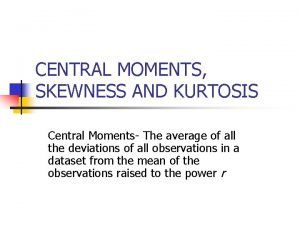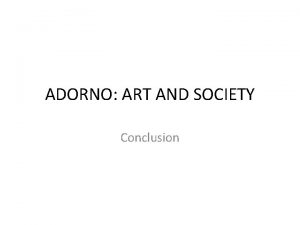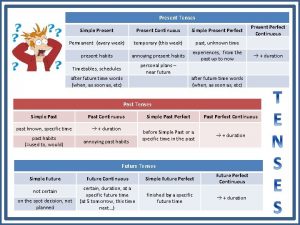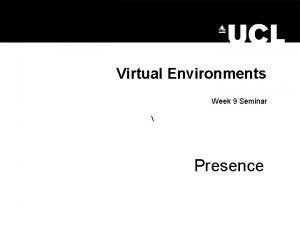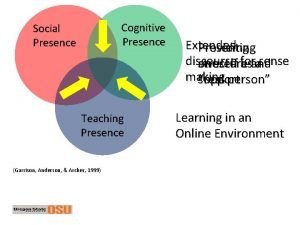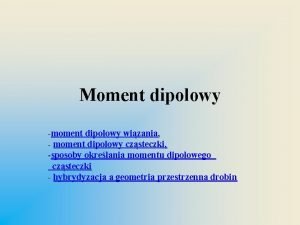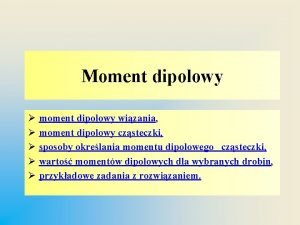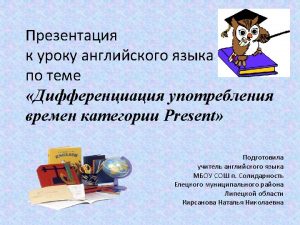The present moment always reveals the presence and

























- Slides: 25

"The present moment always reveals the presence and the power of God. . . We need not worry about whether to pray or be silent, to withdraw into retreat or mix with people, to read or write, to meditate or make our minds a receptive blank, to seek or shun books on spirituality. Nor do poverty or riches, sickness or health, life or death matter in the least. . . Our only satisfaction must be to live in the present moment, as if there were nothing to expect beyond it. " Jean-Pierre de Caussade, SJ

Lord, Keep my eyes open and my mind on topic. Help me learn the material so that I can explain it clearly and convincingly to others, especially my friends. Jesus, you must have spent a lot of time reflecting on life to think of the parables that are recorded in the Gospels. Make me a good, critical thinker and help me to express myself clearly. Help me to use my mind for your greater Glory. Amen.

Objectives: Quick review of Celebration/Redemption Christ in the Sacraments The Source of Liturgy

Apostolic Succession Thus the risen Christ, by giving the Holy Spirit to the apostles, entrusted to them his power of sanctifying: they became sacramental signs of Christ. By the power of the same Holy Spirit they entrusted this power to their successors. This "apostolic succession" structures the whole liturgical life of the Church and is itself sacramental, handed on by the sacrament of Holy Orders. CCC 1087

Apostolic Succession An unbroken chain of power and authority connecting the pope and bishops to St. Peter and the Twelve Apostles of Jesus 13 But now I come to You; and these things I speak in the world so that they may have My joy made full in themselves. 14 I have given them Your word; and the world has hated them, because they are not of the world, even as I am not of the world. 15 I do not ask You to take them out of the world, but to keep them from the evil one. 16 They are not of the world, even as I am not of the world. 17 Sanctify them in the truth; Your word is truth. 18 As You sent Me into the world, I also have sent them into the world. 19 For their sakes I sanctify Myself, that they themselves also may be sanctified in truth. 20 “I do not ask on behalf of these alone, but for those also who believe in Me through their word; 21 that they may all be one; even as You, Father, are in Me and I in You, that they also may be in Us, so that the world may believe that You sent Me.

Apostolic Succession Thus the risen Christ, by giving the Holy Spirit to the apostles, entrusted to them his power of sanctifying: they became sacramental signs of Christ. By the power of the same Holy Spirit they entrusted this power to their successors. This "apostolic succession" structures the whole liturgical life of the Church and is itself sacramental, handed on by the sacrament of Holy Orders. 1087

Celebrating Our Redemption Liturgy (the work of the people) allows us to participate in the events of the Paschal Mystery (celebration). Again this is so that our whole lives can be transformed into the very pattern of the life of Christ. Redemption is the action of Jesus Christ whereby he paid the price of his own death on the cross to save us from sin

Celebrating Our Redemption 13 But now I come to You; and these things I speak in the world so that they may have My joy made full in themselves. 14 I have given them Your word; and the world has hated them, because they are not of the world, even as I am not of the world. 15 I do not ask You to take them out of the world, but to keep them from the evil one. 16 They are not of the world, even as I am not of the world. 17 Sanctify them in the truth; Your word is truth. 18 As You sent Me into the world, I also have sent them into the world. 19 For their sakes I sanctify Myself, that they themselves also may be sanctified in truth. 20 “I do not ask on behalf of these alone, but for those also who believe in Me through their word; 21 that they may all be one; even as You, Father, are in Me and I in You, that they also may be in Us, so that the world may believe that You sent Me.

Celebrating Our Redemption Why are we not of one mind? (How can there be disagreements in the body of Christ? ) What does that mean for our celebration and redemption.

God the Source of Liturgy For the invisible things of him from the creation of the world are clearly seen, being understood by the things that are made, even his eternal power and Godhead; so that they are without excuse. Romans 1: 20.

God the Source of Liturgy In the Church's liturgy the divine blessing is fully revealed and communicated. The Father is acknowledged and adored as the source and the end of all the blessings of creation and salvation. In his Word who became incarnate, died, and rose for us, he fills us with his blessings. Through his Word, he pours into our hearts the Gift that contains all gifts, the Holy Spirit. CCC 1082

- Efficacious -

The Work of Christ in Liturgy Christ instituted the sacraments through his words and actions while on earth. He is present in the: §In the minister of the sacrament. §In the Word, since it is Christ who speaks when the Scriptures are read at the liturgy. §When the Church prays and sings and is gathered in his name. §In the Eucharistic species, his own Body and Blood.

The Work of Christ in Liturgy God the Father is the source of the blessings— divine life-giving actions that are both word and gift—we receive from the liturgy. God acts first—we act in response by giving him worship and accepting his Word as the truth.

The Work of Christ in Liturgy Is this not the same movement as the Paschal meal of the risen Jesus with his disciples? Walking with them he explained the Scriptures to them; sitting with them at table "he took bread, blessed and broke it, and gave it to them. CCC 1374

The Work of Christ in Liturgy - Transubstantiation -

The Work of Christ in Liturgy - Real Presence -

The Work of Christ in Liturgy - Real Presence We all like astonishing tales because they touch the nerve of the ancient instinct of astonishment. This is proved by the fact that when we are very young children we do not need fairy tales: we only need tales. Mere life is interesting enough. A child of seven is excited by being told that Tommy opened a door and saw a dragon. But a child of three is excited by being told that Tommy opened a door. Boys like romantic tales; but babies like realistic tales -- because they find them romantic. In fact, a baby is about the only person, I should think, to whom a modern realistic novel could be read without boring him…These tales say that apples are golden only to refresh the forgotten moment when we found that they were green. They make rivers run with wine only to make us remember, for one wild moment, that they run with water. Chesterton Orthodoxy, p. 96

The Work of Christ in Liturgy - Tabernacle -

The Work of Christ in Liturgy - Epiclesis & Anamnesis -

The Work of Christ in Liturgy - Sacramental Character An indelible spiritual mark (the meaning of the word character in Latin) imprinted by three of the seven sacraments: Baptism, Confirmation, and Holy Orders.

The Holy Spirit in Liturgy Old -The Holy Spirit prepares us for Christ -He enables the Church to understand the Testament as the preparation for the New. -He prepares us to encounter Jesus in the liturgy. -He serves as “living memory” of the Church— anamnesis.

The Holy Spirit in Liturgy In the liturgy of the New Covenant every liturgical action, especially the celebration of the Eucharist and the sacraments, is an encounter between Christ and the Church. The liturgical assembly derives its unity from the "communion of the Holy Spirit" who gathers the children of God into the one Body of Christ. This assembly transcends racial, cultural, social - indeed, all human affinities. CCC 1097

The Holy Spirit in Liturgy Allows us to understand Scripture Prepares our disposition Serves as a “Living Memory” Epiclesis – “Invocation Prayer”

For Review: -When were the Apostles empowered to begin the mission of Jesus? -How did the Apostles ensure that the sacraments would continue to be celebrated after they died? -How does the Paschal Mystery transcend time and place in the sacraments? -What are the four ways that Jesus is present in the sacraments? -What is the Holy Spirit’s role in the anamnesis and epiclesis at liturgy?
 Low prices always
Low prices always Kurtosis calculation
Kurtosis calculation Is theme and main idea the same thing
Is theme and main idea the same thing Art reveals society
Art reveals society Mark twain reveals stage fright
Mark twain reveals stage fright Indirect characterization meaning
Indirect characterization meaning Guttering definition ww1
Guttering definition ww1 Jenny hated reading class theme
Jenny hated reading class theme A sustainability report reveals a firm's
A sustainability report reveals a firm's Narrative writing reveals something of importance.
Narrative writing reveals something of importance. Stage direction examples
Stage direction examples Reveals that his supporters will be made earls
Reveals that his supporters will be made earls Hamlet act 4 and 5 summary
Hamlet act 4 and 5 summary A good author reveals a character through
A good author reveals a character through Present simple present continuous and present perfect
Present simple present continuous and present perfect Present perfect present simple present continuous
Present perfect present simple present continuous Present perfect simple and present continuous
Present perfect simple and present continuous Present perfect continuous cand se foloseste
Present perfect continuous cand se foloseste Simple present present perfect present progressive noredink
Simple present present perfect present progressive noredink Wish in present
Wish in present Present simple present continuous present perfect
Present simple present continuous present perfect Simple present tense
Simple present tense Present simple of always
Present simple of always Present simple s es
Present simple s es Bob always drink tea in the morning
Bob always drink tea in the morning Simple present tense always usually often
Simple present tense always usually often

